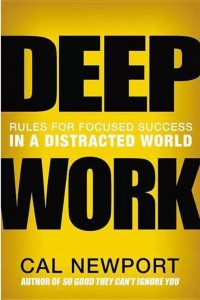Embarking on a trip to Tijuana, Mexico, with Dr. Sabith Khan as an MPPA student was a culmination of anticipation and eagerness, fueled by a yearning to delve into real-world issues and experiences. Having missed out on a previous opportunity due to lacking a passport, I was determined to seize this chance to explore and learn. Little did I know, the journey would profoundly expand my perspectives on the importance of public policies and fuel a desire for meaningful change in an area I knew little about.
Our first stop was at Xquenda Lab at El Colegio de la Frontera Norte, an open space for citizen science focused on the indigenous and migrant populations. Directed by Maximino Matus Ruiz and his team, the lab’s dedication to preserving indigenous languages through digitization was inspiring. Witnessing student research projects and indulging in sopes while overlooking the Mexican Pacific Coast fostered a sense of appreciation for educational initiatives driving social change.
Venturing further, our next stop was at Casa del Migrante, a sanctuary for migrants fleeing violence and seeking refuge. Run by dedicated social workers and volunteers, the facility offered essential services and support to individuals navigating the complexities of migration. Learning about the arduous journey migrants face, coupled with the bureaucratic hurdles of asylum-seeking, underscored the urgent need for policy reform and humanitarian intervention at all levels of the government. The facility can hold up to 200 people for up to 60 days. This conflicts with the 6 to 7 month current wait time for a hearing, so in the interim they help people build lives in Tijuana by securing employment, help to find housing, offer certification programs, and enroll children in school and provide childcare. The facility is funded by the Catholic Church, donations, and fundraising activities, and ran by staff and volunteers.
As a student of public policy and administration, the visit to Casa del Migrante was eye-opening. It shed light on the multifaceted nature of social issues and the imperative for compassionate, multi-dimensional solutions. The passion and dedication of the staff resonated deeply, reaffirming the power of empathy and advocacy in addressing systemic injustices.
Leaving Casa del Migrante, I was filled with a sense of urgency and purpose. The experience really prioritized the need to effect change and advocate for marginalized communities. It reinforced the importance of amplifying voices that are often silenced and the need for centering lived experiences and real stories in policy discourse.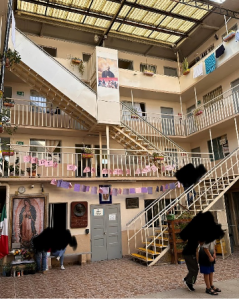
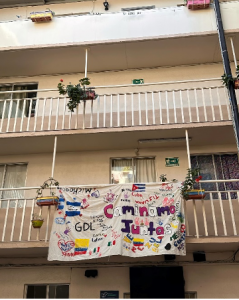
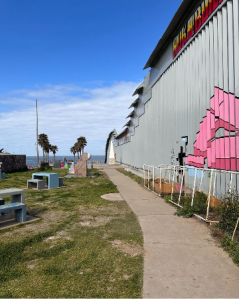
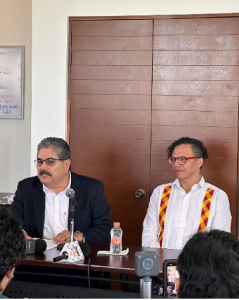
Our journey concluded with a bittersweet visit to Friendship Park / El Parque de la Amistad in Playa de Tijuana, a binational park at the US -Mexico border. The park was inaugurated on Aug 18, 1971 by First Lady Pat Nixon. There were no border barriers of any kind at Friendship Park for generations. I couldn’t find the exact year that changed, but even after walls were built in 2011 San Diego Border Patrol officials still opened the park for limited hours each weekend through the slats of the wall. Over more recent years, this public access for US residents was restricted and in February of 2020, the park completely closed on the US side. Walking amidst murals and remnants of shared histories, I couldn’t help but feel the weight of missed opportunities for unity and solidarity. We did learn that there is a concentrated effort to reopen the park, and I sincerely hope there are ways for us as students to support it.
In closing, I extend heartfelt gratitude to Dr. Khan for his unwavering dedication to exposing students to diverse perspectives and social issues. His commitment to fostering experiential learning and nurturing compassionate leaders is truly commendable. Here’s to the next adventure, may it also be fueled by empathy, advocacy, and a responsibility and commitment to meaningful change.

